Japan mourns ex-PM Shinzo Abe as police investigate fatal shooting - In pics
)
Shinzo Abe, 67, died on Friday morning after being shot from behind during an election campaign speech near a train station in the western prefecture of Nara. Abe was attacked in the city of Nara and airlifted to a local hospital but died of blood loss despite emergency treatment including massive blood transfusions. Abe, Japan's longest-serving prime minister, had stepped down in 2020 citing health reasons. He was prime minister of Japan twice, from 2006-07 and again from 2012-20.
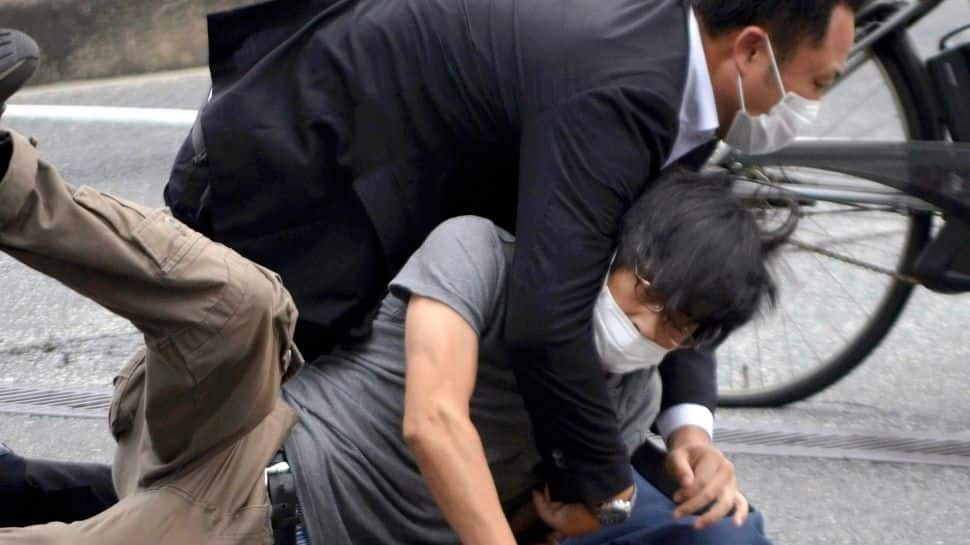
Japanese Police have identified the suspect arrested for shooting former prime minister Shinzo Abe on Friday as Tetsuya Yamagami, a 41-year-old resident of Nara City. Yamagami was arrested at the scene where he was wielding a homemade gun. He has denied he committed the crime because he was opposed to Abe's political beliefs, according to the police. He told police that he initially planned to attack a leader of a religious group, the Japanese media reported on Saturday.
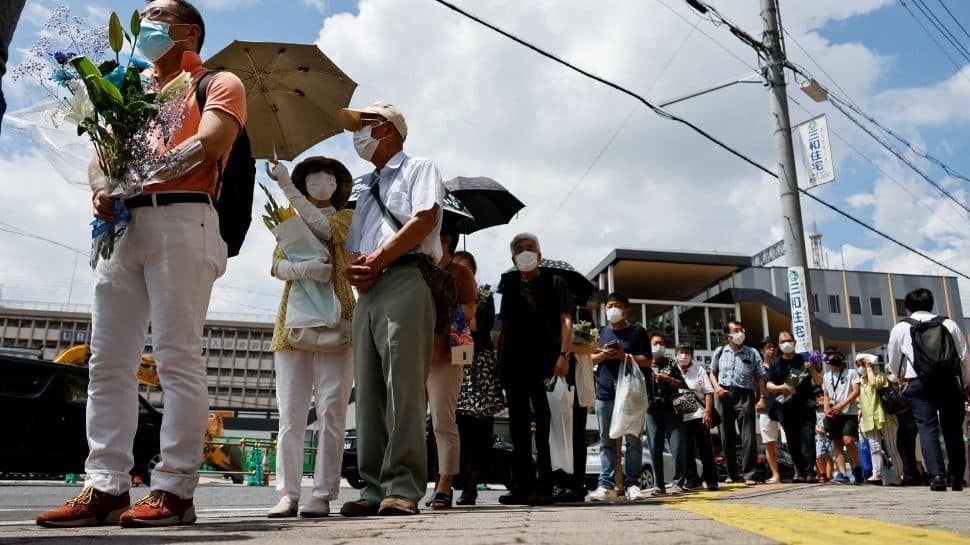
A steady stream of mourners on Saturday visited the scene of former Japanese Prime Minister Shinzo Abe`s assassination in the western city of Nara, an unusual act of political violence that has shocked the nation.
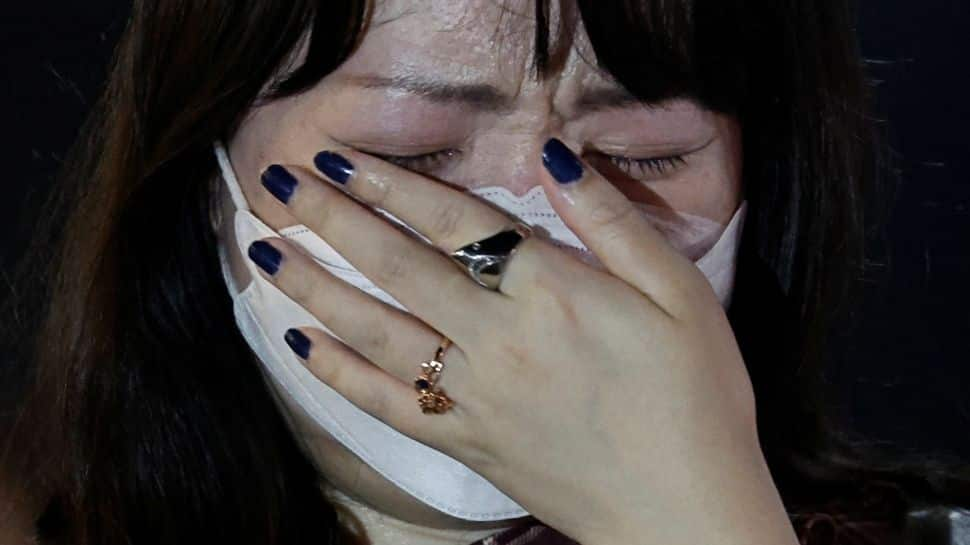
Mourners gathered at his residence and at the scene of Friday's attack in the western city of Nara, where Japan's longest-serving modern leader was gunned down while making a campaign speech, a murder decried by the political establishment as an attack on democracy itself.
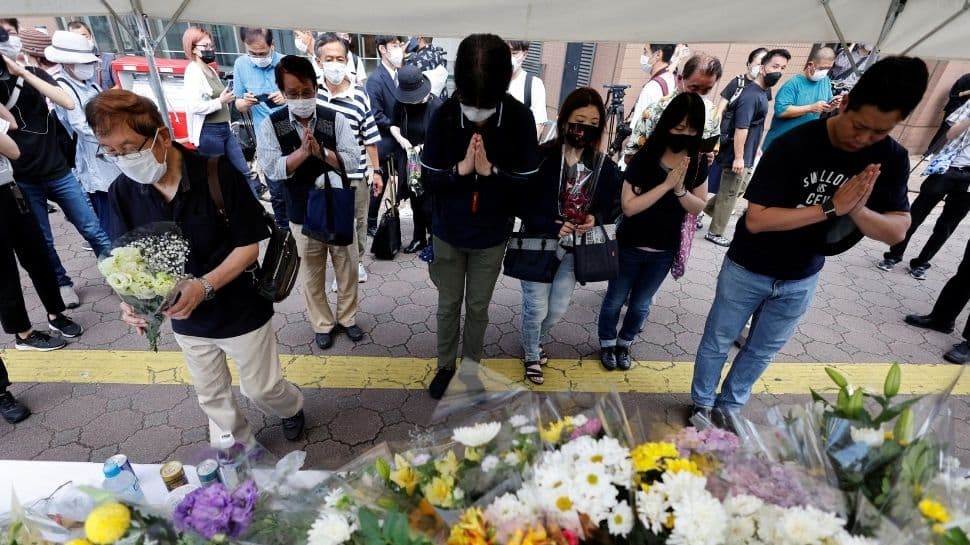
Over 100 people were queuing to lay flowers at midday at a table featuring a photo of Abe giving a speech, with more arriving. Local officials were moving some of the offerings to create space.
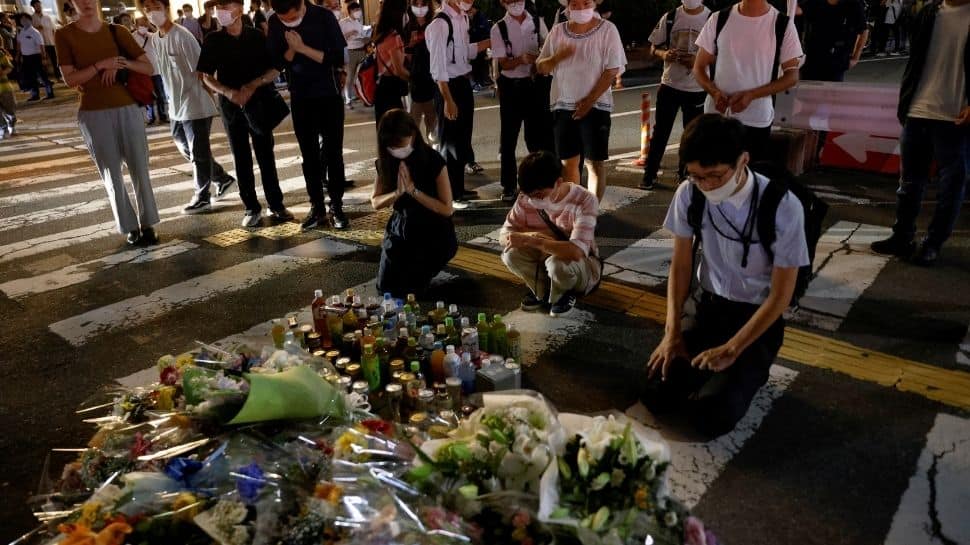
A night vigil will be held on Monday, with Abe`s funeral to take place on Tuesday, attended by close friends, Japanese media said. There was no immediate word on any public memorial service.
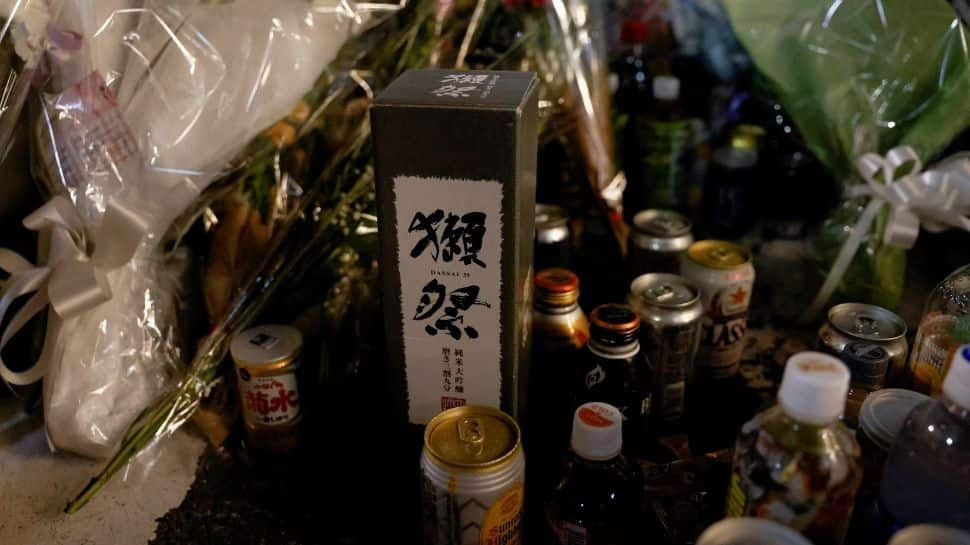
Abe's assassination ahead of Sunday's parliamentary election shocked the nation and raised questions over whether security for the former prime minister was adequate.
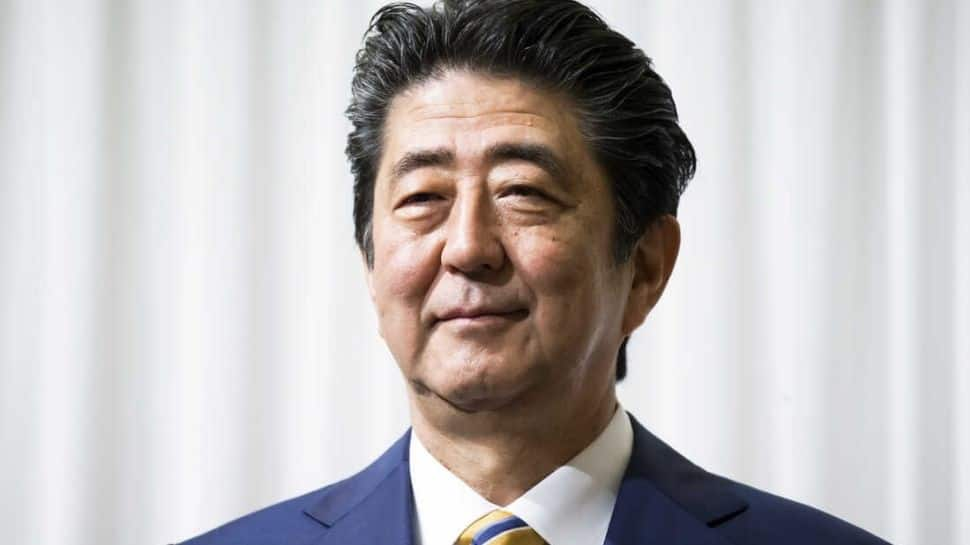
Abe became Japan's youngest prime minister in 2006, at age 52, but his overly nationalistic first stint abruptly ended a year later, also because of his health. He won six national elections and built a rock-solid grip on power, bolstering Japan's defense role and capability and its security alliance with the U.S. He also stepped up patriotic education at schools and raised Japan's international profile.

